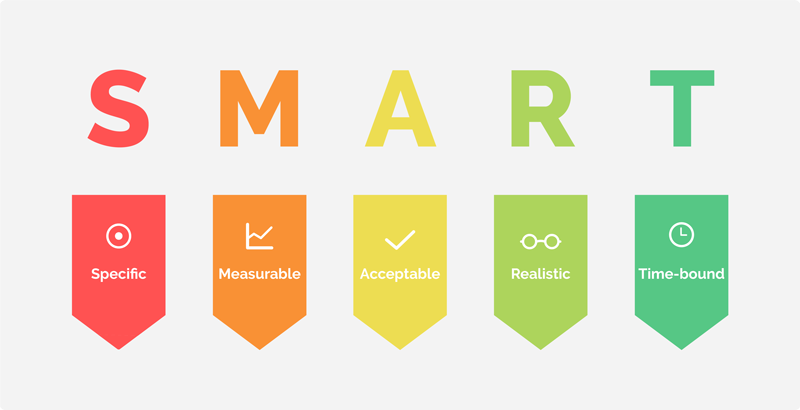Effective Time Management
In university, you are required to not only attend lectures and tutorials, but to spend time completing your readings before class to prepare and studying after class to get ready for tests and assignments. When you combine your academic workload with the time you need to spend on your own well-being and juggling your responsibilities at home, it can be very overwhelming!
Time Management is a one of the best ways you can be successful in university! Developing effective time management skills can improve your grades, help manage your stress, and balance your goals with your personal life.
It is important to remember that time management is a LEARNED skill, it is not something you are born with. Allow yourself time to learn how you learn best, how much time you need to complete tasks, and how much time you need to relax to give your body and mind energy to study.
Being productive doesn't mean being busy all the time. By developing strong time management skills, you will learn how to balance your academic life with your down time and still succeed in meeting your goals.
Goal Setting
What are your goals? Try writing your goals and dividing them into time frames (short-term and long-term). It is important to remind yourself of your goals, and check in time to time to see if you are on track to reaching these goals and if your priorities are the same.
University is a time for growth and learning, it is natural for our priorities to change as we do. Setting goals helps provide you with a direction you want to go, and to create check-in points for you to celebrate your progress. Setting goals helps us to stay motivated and remember what drives you.
Setting SMART Goals
In university, it can be very easy to slip into a performance-based mindset. Many students set high expectations for themselves when it comes to getting a certain grade. Too often, this grade-based thinking becomes the only goals students set for themselves and it can be very difficult to obtain without proper time management and steps to succeed.
Smart stands for: Specific, Measurable, Attainable, Realistic, and Time-based. By using the SMART goal formula, you can create task-based goals which give you small manageable steps to reach your goals and hold yourself accountable.
For example, instead of the performance-based goal: "I will get an A on this essay" practice setting task-based goals such as: "In order to complete the first draft of my paper by the 6pm deadline on Thursday, I will set aside 2 hours every Tuesday, for the next 3 weeks, to work on compiling my research". This SMART goal is specific, you can measure the success of the goal by it being completed on time, and the timeline is attainable. This goal is realistic and relevant to your studies, and it is time-based because you are dedicating specific times over the course of 3 weeks to complete your task.


Managing your Goals
It is more effective to break goals into small manageable pieces, than it is to spend hours on it at a time. This spaced practice will also help to avoid procrastination! Once you have written your goal, try to break it down into a step by step process. Long-term goals for your courses can be further divided down into semesters, weeks, and days.
While it may seem challenging to take in the whole scope of that convergent goal, thinking of your goals in this way helps to reinforce the idea that there is a connected path linking what actions you take today and the successful completion of your goals. Seeing these connections can help you monitor your own progress and detect whether you are on track or not. Take some time now to think through the goals you've set and to break them down into their smaller constituent parts.
Procrastination
Did you know that up to 40% of university students experience procrastination as a problem? Procrastination often happens because students are anxious and stressed out about an assignment, so much that in order to avoid this anxiety they delay starting the assignment.
Many students tend to cram at the last minute, which leads to even more stress! Time management is actually a stress reduction tool that. By planning ahead and setting SMART goals for yourself, you are being pro-active instead of re-active to academic stress.
Sometimes, getting started is the hardest part! It is important to remember that when you start an assignment, it doesn't have to be perfect right away! Treat each study session or assignment like a draft, all you have to do is start it and you can make it better later.
Take it one step at a time and ask yourself, what is one thing I can do today? What can I do today for my future self?


Motivation
There are two main types of motivation: intrinsic and extrinsic. Extrinsic motivation is reward based while intrinsic motivation is what motives us internally. For example, someone who is extrinsically motivated may be motivated by a grade to study, while someone who is internally motivated may be motivated to study because the class they are in is their favourite subject.
Try your best to take courses you are interested in, this will make finding motivation to study for them much easier! Another exercise is to think back to when you started your degree and remember why you are passionate about your program. Alternatively, look ahead to the future, and remind yourself what goals you are going to accomplish.
It is natural to not always feel motivated, try your best to reflect on how you learn best and tune into your internal motivation, then reward yourself once you have completed your goal!
The Pomodoro Technique
The Pomodoro Technique is a time management method that helps you breakdown working time into smaller intervals that include regular short breaks.
Additional Resources
| Resource | Download | Description |
|---|---|---|
| Blank Weekly Schedule | PDF Word | Plan your week by writing in set tasks such as school and work, and flexible tasks such as breaks and assignments. |
| To Do List | PDF Word | Prioritize your tasks by using this template to create a to-do list to rank tasks in order of importance. |
| Study Task Breakdown for Exams | PDF Word | Learn how much time you need to prepare by tracking how much time you estimate tasks to take and recording how long tasks actually take. |
| Course Requirements Outline | PDF Word | Worksheet for mapping out course requirements to help prioritize tasks based on how much assignments are worth. |
| Time Management Module | SPARK: Student Papers & Academic Research Kit |
